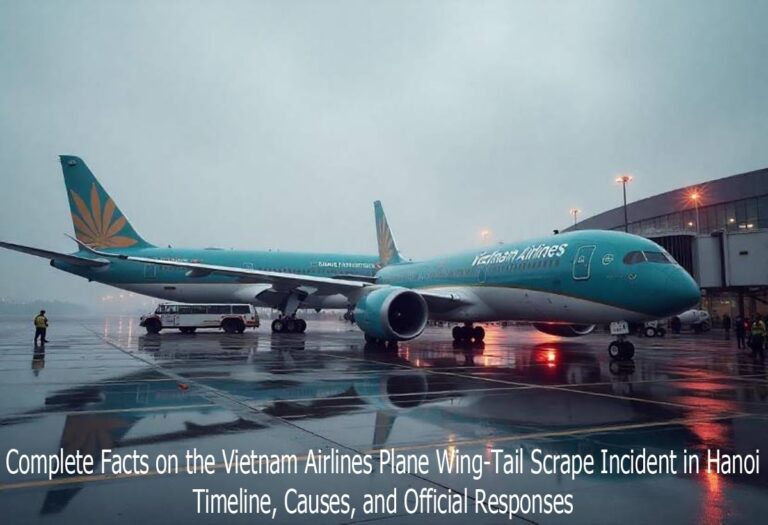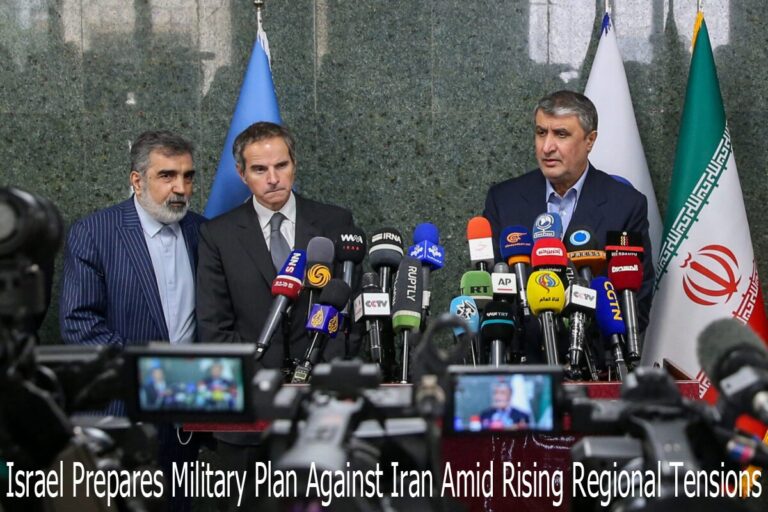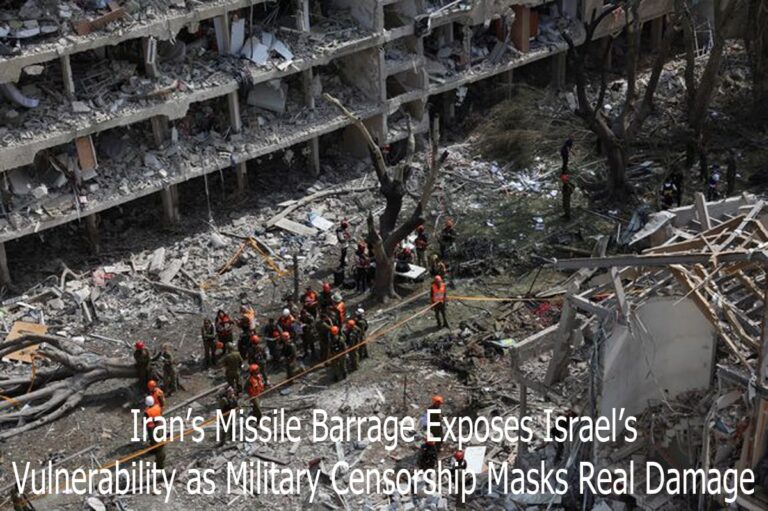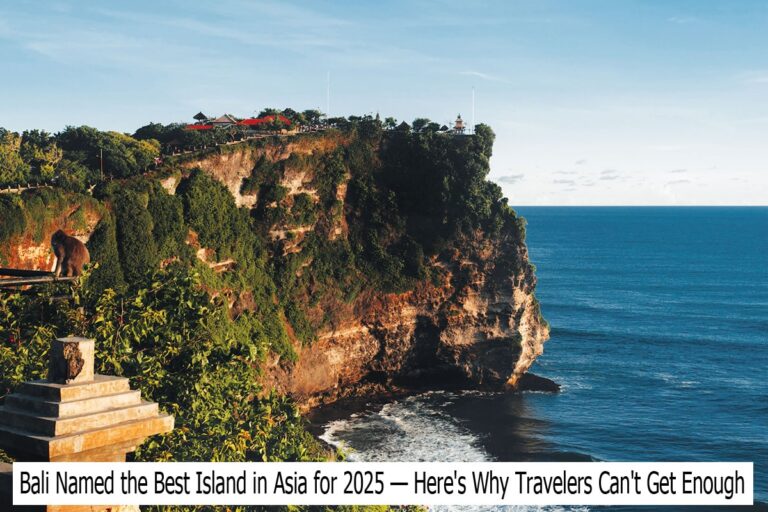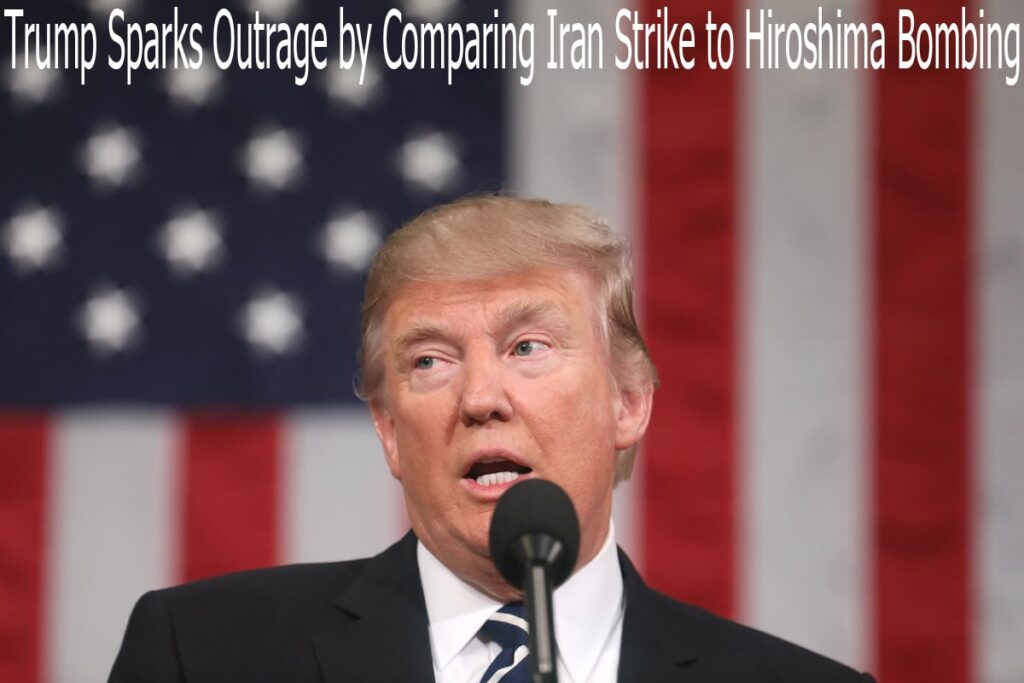
Trump Sparks Outrage by Comparing Iran Strike to Hiroshima
The Hague, June 26, 2025 — After likening America’s recent attack on Iran’s nuclear facilities to the atomic bombings of Hiroshima and Nagasaki during World War II, former US President Donald Trump has provoked international outrage.
Speaking at the NATO Summit in The Hague on Tuesday, Trump said, “I don’t like to use the Hiroshima comparison, but it’s essentially the same thing — it ended the war.” His comments came just days after U.S. forces, in cooperation with Israeli intelligence, launched airstrikes on three key underground nuclear sites in Iran.
U.S. Strikes on Iran’s Nuclear Facilities
The U.S. military operation targeted Iran’s heavily fortified nuclear sites in Fordow, Natanz, and Isfahan. Utilizing bunker-buster bombs, the strikes aimed to cripple Iran’s ability to enrich uranium and support Israel during its 12-day armed conflict with Tehran.
Following the attacks, Trump claimed the facilities were “completely destroyed” and declared the conflict effectively over. A ceasefire agreement was announced hours later, halting what many feared could escalate into a regional war.
However, the Iranian government quickly dismissed Trump’s assertions. A spokesman for Tehran stated that while structural damage occurred, their nuclear program remains intact and continues for peaceful purposes under the Non-Proliferation Treaty (NPT). Iran also warned it may reconsider its commitment to the NPT if “unprovoked aggression” continues.
Intelligence Reports Contradict Trump’s Claims
Despite Trump’s bold statements, internal assessments from the U.S. A much less clear-cut conclusion is revealed by the Defense Intelligence Agency (DIA). Analysts concluded that the strike set back Iran’s nuclear development by only “a few months,” without neutralizing key infrastructure such as centrifuges or uranium stockpiles.
CNN, citing classified sources, reported that much of the core nuclear material remains secure underground and that Iran’s nuclear ambitions are likely to resume shortly.
Trump, however, rejected the intelligence, stating during the summit, “They say they don’t know. I say it’s complete devastation. We ended it.”
Global Reactions and Criticism
Trump’s Hiroshima comparison triggered immediate condemnation from historians, diplomats, and international watchdogs.
Laura Jenkins, a historian at the University of Chicago, called the statement “historically inaccurate and morally reckless.” She noted, “There is no meaningful comparison between a conventional airstrike and the catastrophic human toll of atomic warfare.”
Japanese officials also expressed dismay over the remarks, reminding allies of the devastating legacy of nuclear attacks on Hiroshima and Nagasaki in 1945 — which killed over 200,000 civilians.
Iranian officials accused Trump of deliberately escalating tensions and “trivializing” the horrors of nuclear war. Foreign Minister Abbas Araghchi said, “This comparison is not only factually incorrect, but deeply offensive to the victims of nuclear atrocities.”
The Bigger Picture
While the U.S. claims the strikes achieved a “strategic objective,” critics argue that overstating their impact — particularly by invoking Hiroshima — risks undermining diplomatic efforts and global nuclear stability. Analysts warn that such rhetoric could embolden hardliners in Iran and provoke retaliatory measures.
Experts also questioned the long-term consequences of using dramatic comparisons for political gain. Afsaneh Farhadi, an analyst with the International Crisis Group, said, “When political leaders liken limited military actions to history’s greatest acts of destruction, they distort reality and raise dangerous expectations.”
Conclusion
As the dust settles on the Iran-Israel confrontation, Trump’s remarks have reignited debate over the appropriate use of military force and the memory of nuclear tragedy. While the world watches Tehran’s next move, concerns grow that inflammatory comparisons may do more harm than good in an already volatile region.
